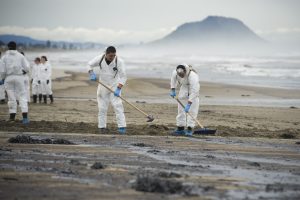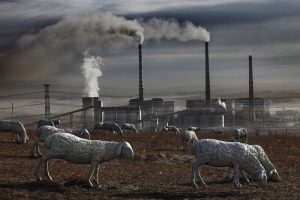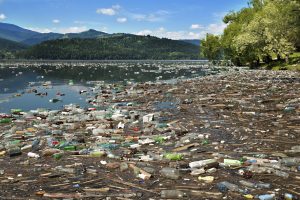Mitigating Soil Pollution

Some of the best soil in the world is in the tropics, where layers upon layers of living matter has been growing, dying, and decomposing for thousands of years. This is why the tropics are the perfect places to grow fruit. However, tropical areas are also being polluted and abused. Our efforts must focus on a global scale. The first steps are to stop deforestation immediately, and reduce soil pollution to a minimal.
Another empowering option is to create our own rich soil through practices such as composting. This practice might seem slow but it can provide exponential growth. An excellent example is vermin-composting. This type of composting technique uses worms to chew and decompose organic food scraps to create a rich soil often referred to as “black gold”.
Worm castings are some of the best forms of soil anyone can get their hands on. This process, however, requires organic food scraps, worms, a composting system, time, and care. A pound of food scraps can take two months until it decomposes fully and becomes suitable for planting. The time food takes to decompose depends on the quantity of worms, the environment, and the quality of the food.
Worms, like every other living being on the planet, have their preferred diet. There are things they eat and things they don’t. There are many types of food scraps that can actually kill them. Out of all the foods you can feed worms the best ones are fruits and leafy greens. Coincidentally, these seem to be the best source of foods for humans too.
Worms can eat other vegetables like corn and carrots, but is better if they are raw, and they take a longer time to decompose than fruit and leafy greens. Vermin-composts don’t do so well with cooked foods, and is best not to feed them animal products.
It is easy to feed a vermin-compost system, but the worms’ environment is fragile. Careless behavior can send the system out of balance, and kill the entire colony.
Implementing composting practices may seem insignificant compared to massive soil loss around the world. Regardless, it is an important step in the right direction. If we want to steer our global community towards a bright and positive future, we must have all the pieces fit together. We need to follow a diet that will help us protect and regenerate our soil, so that our children, and their children, can use it for generations to come.
Of course there are some things we still depend on. We need to burn enough fossil fuels while we transition to renewable energy. We require some amount of lumber to build houses, create paper, and in some cases, to keep us warm. At least until we get on the habit of using other resources instead. There are factories and industries that must continue to run, in order to keep improving humanity’s living standards and technological evolution. Things may not be ideal yet, but we are moving in the right direction.
Previous Section:
Next Section:
Acknowledgments
Thank you for reading!
Please donate to help us publish this book.
PayPal: trevesbruno@gmail.com
Venmo: @Bruno-Treves


